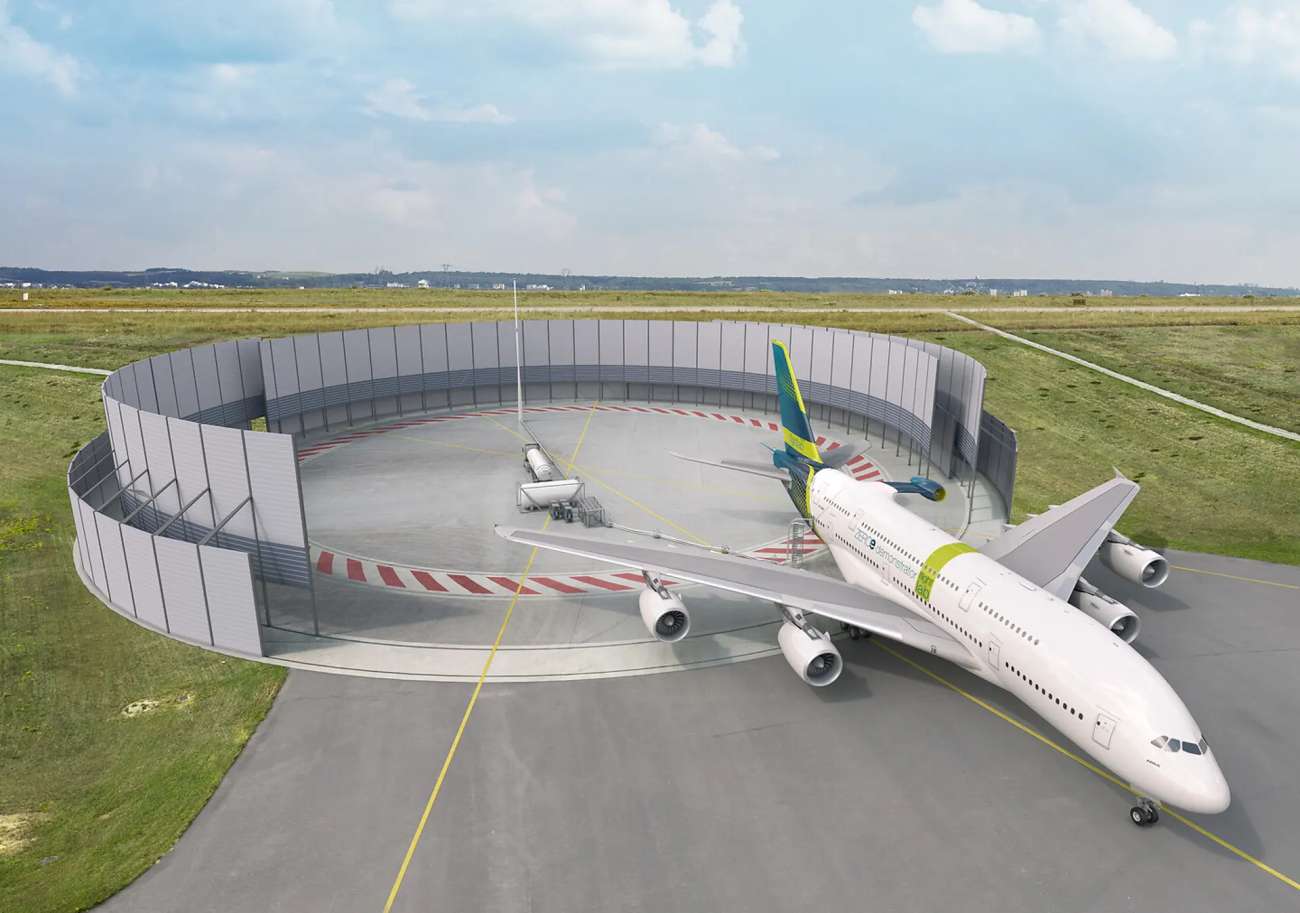Airbus plans to test a powerful electric powertrain on the A380. The engine will be powered by liquid hydrogen. In flight, the fuel will be kept at cryogenic temperatures. The first tests should begin in 2026.
Aircraft resembling flying wings, powered by hydrogen engines in 2035: this is the vision of a low-carbon future for civil aviation held by aircraft manufacturers Airbus and Boeing. The former is already working on this energy source and believes it will be able to test an electric powertrain powered by liquid hydrogen in flight by 2026. This will be just one of many steps towards the design of a zero-emission airliner that is expected to take to the skies for the first time by 2035.
Airbus does not specify how this temperature will be maintained. Each module will have its own fuel cell to convert hydrogen gas into electricity. With this under-wing pod process, Airbus considers that space in the fuselage for cargo and passengers will be preserved. It will also be possible to detach the modules from the wings for maintenance. Initially, the A380, which has been withdrawn from service, will be used to test the prototype of this type of powertrain. Instead of positioning the tank under the wing, the liquid hydrogen will be located inside a non-pressurized section of the fuselage.
 |
Airbus and ArianeGroup have just signed a partnership agreement to build the world's first liquid hydrogen refueling facility. It will be located at Toulouse airport and should be operational by 2025. © Airbus
Liquid hydrogen for long-distance flights: The A380 will not be stripped of its four engines, but it will be used to test a single large electric motor fixed to the left rear section of the fuselage at high altitude. Placed just before the vertical stabilizer, this additional module will be all the more conspicuous as it gives the aircraft a certain asymmetry. For the members of the ZEROe test team at Airbus, the fact of having this motor on one side only will not pose a problem for the aircraft in flight. The A380 is known to be very aerodynamically stable. The air flows induced by the nacelle and propeller should not have any influence on the tail surfaces, according to the researchers. As for the choice of liquid hydrogen, Airbus explains that the density of fuel in this state makes it possible to obtain an autonomy much more important than in gaseous state. In the future, this will make it possible to fly mainline aircraft with 100% electric engines. But, for the moment, the use of liquid hydrogen is reserved for space programs. This is why it is necessary to test this solution at high altitude for aviation. Liquid hydrogen fuel also means adapted ground infrastructures. To this end, Airbus and ArianeGroup have just signed an agreement to build the very first liquid hydrogen refueling facility at an airport in Toulouse. This zone should be operational by 2025.
|


Comments
Post a Comment